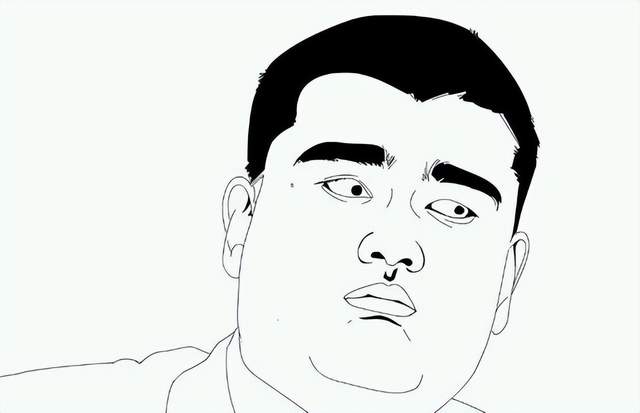剑桥MSE丨英语中谐音梗能有多好笑?
英文里也有很多与谐音梗差不多的表达,
一般被称为“双关语(pun)”,
分为词义双关和谐音双关。
词义双关
词义双关,利用英语词汇的一词多义,在特定语境下产生特殊的语言双关。
举几个例子:
present
There is a saying: Yesterday is history, tomorrow is a mystery, but today is a gift. That is why it is called "present".
有句老话说过:昨天是历史,明天是未知,今天才是拥有。这就是为什么它叫做礼物(现在)。
"This is why it is called present." present就是一个双关语,即指的是礼物,也指的是当下,一语双关。
sentence
A: What's the longest sentence in the world?
B: Life sentence.
世界上最长的句子(刑罚)是什么?
无期徒刑。
这里的sentence就是一词多义的双关,既可以指句子又可以指刑罚。
late
Better late than the late.
这里的第一个late指晚的、迟的,第二个late表示已故的。
所以这句话可以翻译成:迟到总比到另一个世界好。也可以翻译成 “道路千万条,安全第一条,行车不规范,亲人两行泪。”
顺便复习一个小知识点,the+形容词表示一类人,比如:
the old老人
the young 年轻人
the disable 残疾人
the late 去世的人
negative
Madam: I look nice in the picture. don't I?
Photographer: Well, Madam, the answer lies in the negative.
女士:我在照片里一定很漂亮吧?
摄影师:女士,答案在底片里(答案是否定的)。
negative可以指消极的,同时它也可以作名词,意为底片。“the answer lies in the negative”既可以表否认,也可以指答案在底片里。
patient
Doctor:Sorry about leaving you waiting.
Patient:No problem, I am patient.
医生:抱歉让你久等了。
病人:没关系,我有耐心的啦(我是病人)。
patient作名词意为“病人”,作形容词代表“有耐心的; 能忍耐的”。医生迟到了,作为病人只能“patient”了。
Polish
-How do you think we keep the cars here so shiny?
-Polish?
-Sorry sir, Jak myslisz, jak trzymamysamochody tutai tak blyszczace?
销售员:您知道我们怎么让车保持铮亮吗?
买家:上抛光剂(说波兰语)?
销售员:抱歉先生,(下面用波兰语)@&*673&%#*&#@%*………?
Polish作名词时意为“波兰人;波兰语”,也有“ 上光剂; 抛光剂 ”的意思。这里要注意,作“波兰人;波兰语”讲时,P要大写。
除了一词多义,某些句子的说话对象和断句方式也能带来歧义,比如下面这个经典的双关对话:
Doctor : Don't worry, David. It's just a minor operation.(小手术)
Patient : My name is not David.
Doctor : I know. I am David.
医生:别担心,戴维。只是个小手术。
病人:我的名字不叫戴维(不对啊医生你不是走错手术室了吧)。
医生:我知道啊。我是戴维。
求病人的心理阴影面积。
-Call me an ambulance.
-You are an ambulance.
-快给我叫救护车。
-救护车。
“Call me an ambulance.”可理解成“给我叫救护车”,换个断句方式则会成为“Call me 'an ambulance.'”——“管我叫‘救护车’”。

这个冷笑话简直要冷死我。
谐音双关
谐音双关,单词发音相同或者相近。例如: weak和week, deer 和dear, knew和new, in和inn, meet和meat等等。
例如:
1
They pray for you today and prey on you tomorrow .
他们今天为你祈祷,明天就会加害于你。
pray 和 prey 发音相同,长相类似。
pray 英 [preɪ] 美 [preɪ]
v.祈祷;祷告;企盼;祈望
adv.(用于询问或指示)请问,请
prey 英 [preɪ] 美 [preɪ]
n.猎物;受害者;受骗者
v.捕食;掠夺;折磨
2
Seven days without water make one weak.
七天不喝水,人就会虚弱。
weak 和 week 同音。
听起来像:
Seven days without water make one week.
3
Why can't a bicycle stand by itself?
It's too tired.
为什么自行车不能单独站立?
它太累了。
Too tired与two tyres(轮胎)谐音。
4
What color is the wind?
Blue.
风是什么颜色?——蓝色。
blew(blow过去式)与blue同音。
5
What is the most contradictory sign in a library?
Speaking aloud is not allowed.
图书馆里最矛盾的提示是什么?
不允许大声说话。
aloud 英 [əˈlaʊd] 美 [əˈlaʊd] 大声地
allowed 英 [əˈlaʊd] 美 [əˈlaʊd] allow 的过去式和过去分词
6
Who is closer to you, you mom or your dad?
Mom is close, because dad is farther.
谁和你更亲近?妈妈还是爸爸?
妈妈更亲近,因为爸爸更远。
father 英 [ˈfɑːðə(r)] 美 [ˈfɑːðər]
farther 英 [ˈfɑːðə(r)] 美 [ˈfɑːrðər]
7
Why is Sunday the strongest day in a week?
The rest of the days are week days.
为什么星期日是一星期中最强壮的一天?
其他的日子都是弱天。
weak day与weekday(工作日)谐音。
8
Husband: Oh no! Our neighbour died!
Wife: Who, Ray?
Husband: I don't think cheering is appropriate, darling.
丈夫:天啊!咱们的邻居死了!
妻子:谁?瑞吗?
丈夫:亲爱的,这时候欢呼好像不太合适。
"Who, Ray"发音和hooray差不多。
hooray int. (表示快乐或赞同)好极了
英[huˈreɪ] 美[huˈreɪ]
建议家长们加入剑桥考试备考群,
如果对于报名/考试/学习有疑问,我们将详细为您解答!

(添加微信后将您拉群)